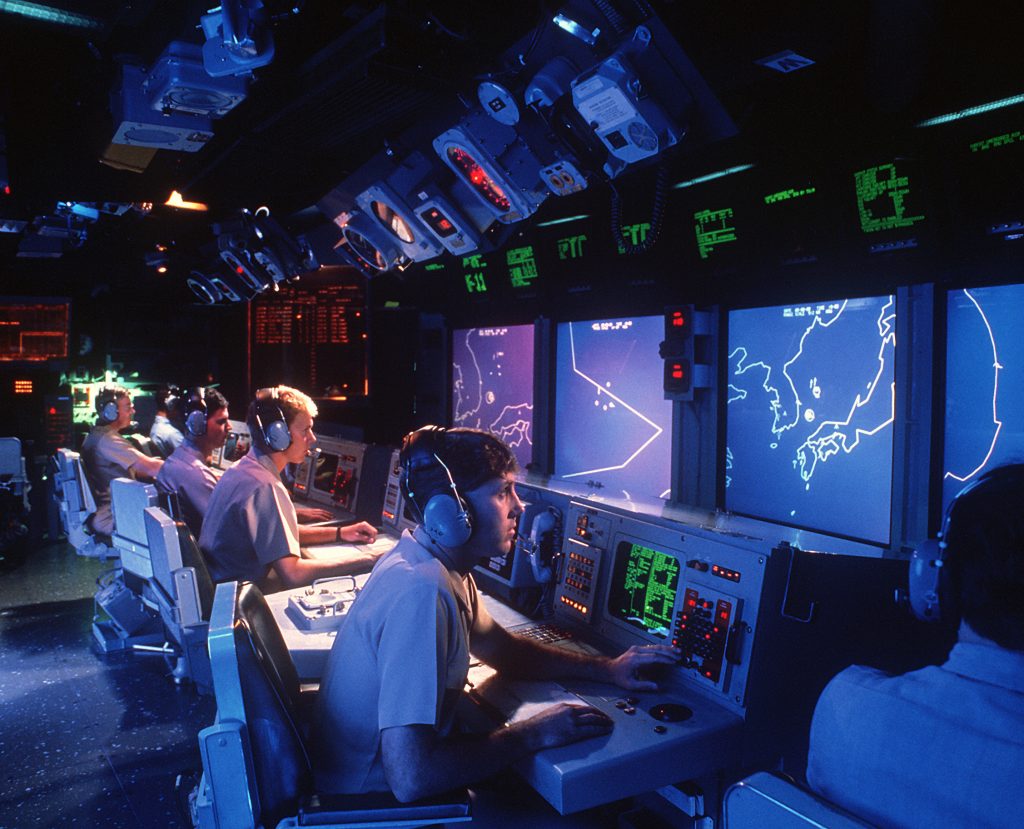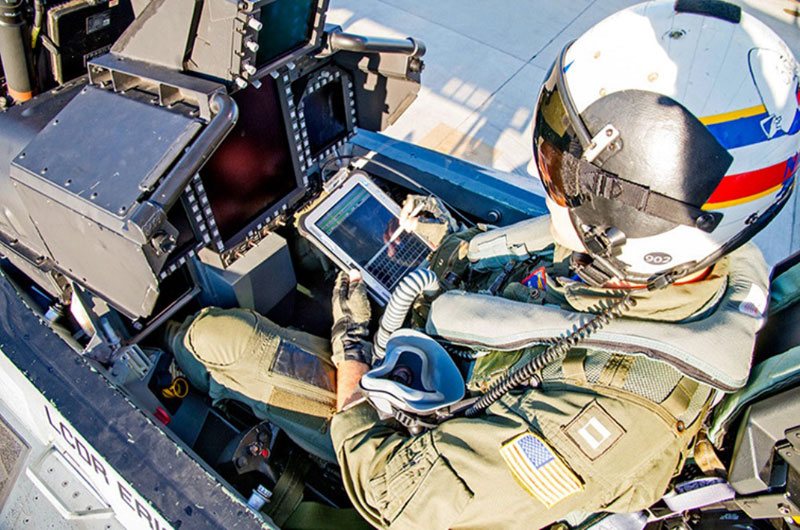Psychologists Optimize Teamwork on a Naval Carrier Strike Group
Florida Tech Researchers Bring Multi-Team Expertise to the Military
Successful military missions often boil down to streamlined procedures executed by a team. But as U.S. defense relies more on complex technology and specialized knowledge, flawless teamwork can be a challenge.
The U.S. armed forces sometimes turn to industrial and organizational psychologists to analyze communication and interaction inside a single team or between teams on the same mission. Those insights can help the military optimize performance and inform better training protocols. Florida Tech’s Patrick Converse (the principal investigator), Jessica Wildman (co-principal investigator) and Erin Richard (co-principal investigator) were recently awarded a grant, funded by the Office of Naval Research to
examine teamwork within and across the various aircraft and ships that make up a carrier strike group. The Florida Tech researchers will be working along alongside researchers from the Naval Air Warfare Center Training Systems Division and experts from Aviation Systems Engineering Company. The project is part of a larger effort to improve training and performance management for sailors and aviators within the U.S. Navy.
“Our goal is to understand at a systematic, data-based level, how teamwork occurs in Navy multi-team systems so that we can provide better training on how to communicate and coordinate effectively during complex, mission-critical situations,” Wildman says.
“The Navy already has an incredibly robust training program that ensures every sailor and aviator becomes an absolute expert in their technical area,” she added. “But that specialized expertise can be a double-edged sword when it comes to team interaction, though. Imagine you are 1 of 200 people involved in a mission, and each person has specialized expertise about different pieces of cutting edge technology. You probably only truly understand what a handful of the other people on your team can do. How are you even supposed to know if your knowledge can help them, or if their knowledge can help you? That’s where our research comes in – trying to figure out how to best coordinate and take advantage of the specialized capabilities distributed across these massive teams.”
Industrial and Organizational Psychologists to the Rescue
To tease out the interactions within and between teams on a mission, the Florida Tech psychologists will conduct in-depth interviews with key team players to identify tasks, skills, and responsibilities. Later, after the data are collected and coded, they’ll analyze when and how team processes such as communication and coordination played a role in mission success, and how to best train those processes to improve future fleet effectiveness.
The information gathered by the researches will inform the Navy on future training and help it improve performance measurement tools.
“As organizational psychologists, much of our work is aiming at learning or development outcomes,” continues Wildman. “The bottom line is to improve performance. Based on the data we collect, we can develop recommendations for training and performance measurement to ensure Navy personnel are not only technical experts, but teamwork experts as well.”

%CODE1DISCOVERYMAGVOL13%






